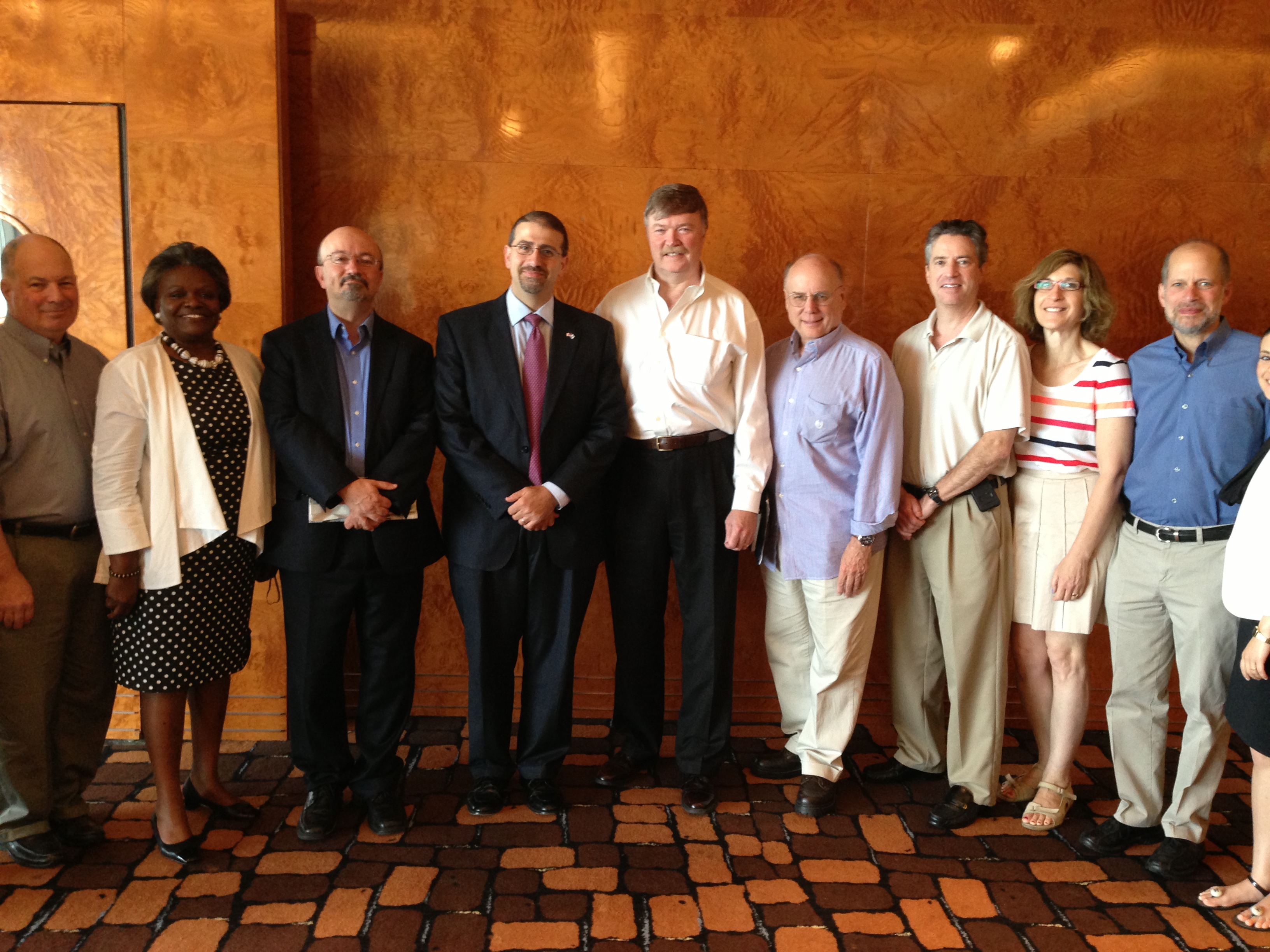Standing atop a mountain in the Golan Heights area of Israel, IIT Chicago-Kent College of Law Dean Harold J. Krent saw a scene unlike anything he had witnessed before.
Overlooking the Israeli-occupied territory near Lebanon and Syria, Krent expected to take in a scenic view. Instead, he stood stunned as a battle broke out between Syrian rebels and the Israeli government.
“We started seeing white puffs of smoke and heard mortar firing,” he said. “It was so surrealistic to witness this battle in progress. We saw (United Nations) vehicles scurrying. It turns out that several U.N. people had just been killed because of mortar shells. It had such an amazing impact on me.”
The unexpected skirmish was just one part of what Krent observed when he and officials from seven other law schools visited the country as part of the first-ever “Law Deans to Israel” mission.
The rest of the excursion, Krent said, was notably less violent. The weeklong trip, sponsored by the nonprofit group Scholars for Peace in the Middle East (SPME) and the American Association of Jewish Lawyers and Jurists (AAJLJ), took place last month.
Krent would not have heard of the opportunity, he said, if not for his friend, Loyola University Chicago School of Law Dean David N. Yellen, who signed up for the trip prior to him.
“I saw him at dinner one night, he told me about it and said, ‘You’ve got to come,'” Krent said. “His encouragement was pivotal.”
Going together brought “an ease to the trip,” Krent said, “because at least there was a familiar face of someone I knew and felt comfortable with.”
The description of the trip appealed to him, Yellen said, especially because of its intent to introduce law school deans to Israeli institutions and governmental entities.
“We’re always looking for potential international partners,” he said. “And honestly, a trip to Israel sounded fascinating. I’d never been before and it sounded like a great opportunity.”
The other deans were from law schools at Rutgers University, the University of Michigan, Widener University, Florida International University, UCLA and the University of Missouri.
Krent said the program was designed to “create and encourage partnerships between our universities and Israel and familiarize the deans with some of the law system and pressing international law issues confronting Israel today.”
During the trip, the deans met Daniel B. Shapiro, the U.S. ambassador to Israel, and Nitsana Darshan-Leitner, founder of the Shurat HaDin Israel Law Center, a civil rights nongovernmental organization that combats terrorist groups through lawsuits brought on behalf of victims.
They also attended a dinner reception hosted by SPME board member David Menashri, president of the Tel Aviv University College of Law and Business. The dinner also featured law school deans from several Israeli universities, members of the Israeli judiciary and leading members of the Israeli Bar Association.
They visited four universities and the Israeli Supreme Court. They also went to the Israel Ministry of Foreign Affairs, where they discussed security and peace issues with officials.
The deans also got a firsthand view of security concerns in the country when they visited the Israeli West Bank barrier — a concrete and barbed wire fence under construction by the state of Israel along and within the West Bank.
The group traveled in army Jeeps to the site, which Israel started building in 2002 in what it said was an effort to keep out Palestinian suicide bombers.
The construction of the fence was controversial, though.
“We talked about the series of legal challenges that had been raised by Palestinian Israelis against putting a fence in that location,” Krent said, “because of environmental concerns and ruining the foliage by cutting off the fields from the area village.”
The trip, Krent said, displayed a side of Israel that he wouldn’t have been able to see otherwise.
“If I had gone as a tourist, I would not have had access to peace negotiators or the Israeli leaders,” he said. “It was a fascinating trip that was handled really well.”
Yellen, who is of Jewish heritage, said he grew up learning about the history of Israel, but it was never something he connected with on a personal level.
Visiting the country, though, helped him develop a stronger appreciation for where his ancestors came from.
“It was fascinating to see what a dynamic, messy democracy it is and how the role of Israel law is every bit as much a part of the fabric of society and the controversies in society as it is in the U.S.,” he said.
In an area rife with conflict, there is long-term optimism that peace can be achieved, Yellen said, but there is also a recognition that it can’t be reached overnight.
“I didn’t get a sense that anyone is expecting any major advances in the peace process in the near future,” he said, “but things will unfold in a way that no one can see right now. I’ll follow that for the rest of my life with a different sense of things.”
Alyza D. Lewin, the president of the AAJLJ and a partner at Lewin & Lewin LLP in Washington, D.C., said she hopes the U.S. law school deans will now have a better understanding of Israel’s security and policy issues.
“The Middle East and Israel end up in the news all the time,” she said.”Our feeling was that a lot of the issuesregarding Israel and the Middle East are shifting to more of a legal arena and we thought it was important for law school deans to see firsthand what life is like in the country.”
Since returning, Krent has contacted two deans from Israel about creating some joint projects, including a summer exchange program. The school has existing partnerships with law schools in Argentina, Colombia, Thailand and France.
“I learned something from a comparative law perspective about another legal system,” he said. “And I enjoyed the opportunity to speak to other deans about their common problems and challenges,” he said.





